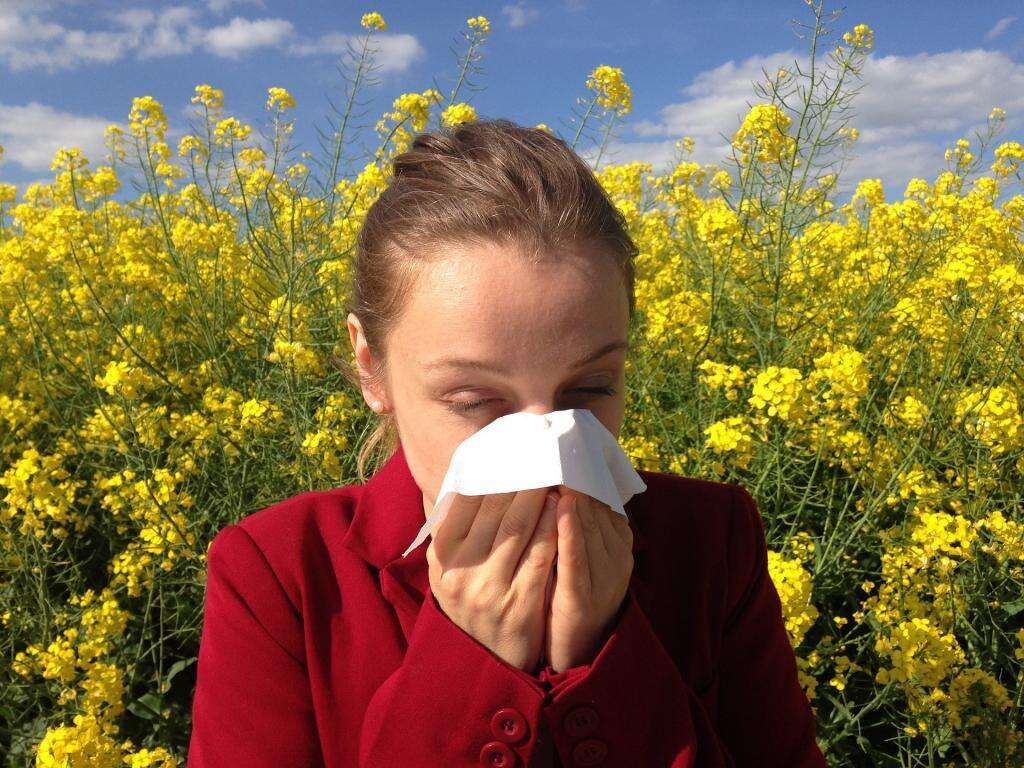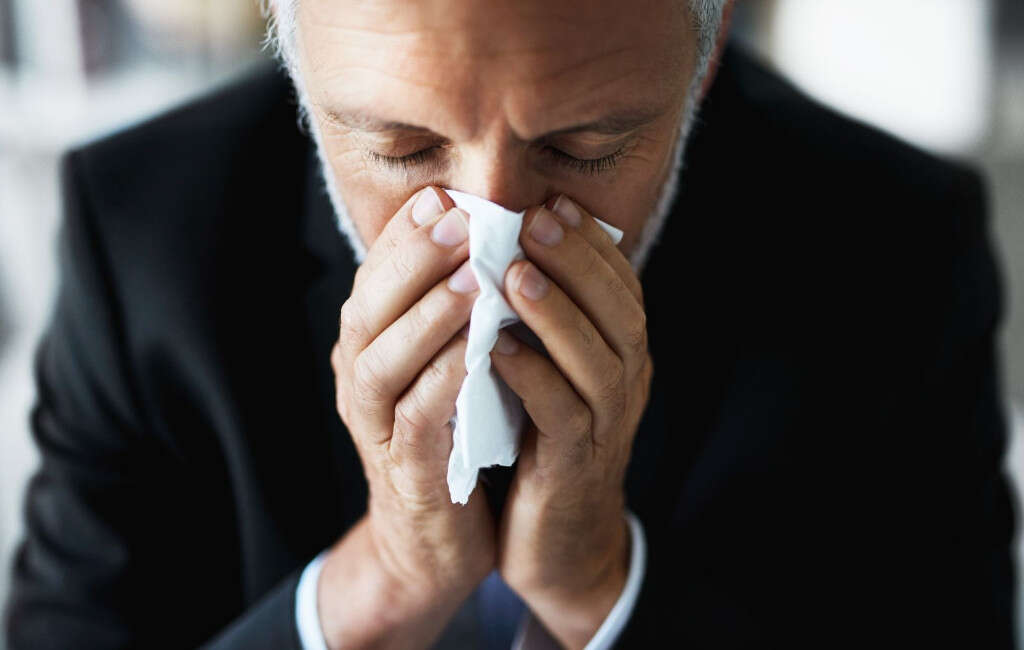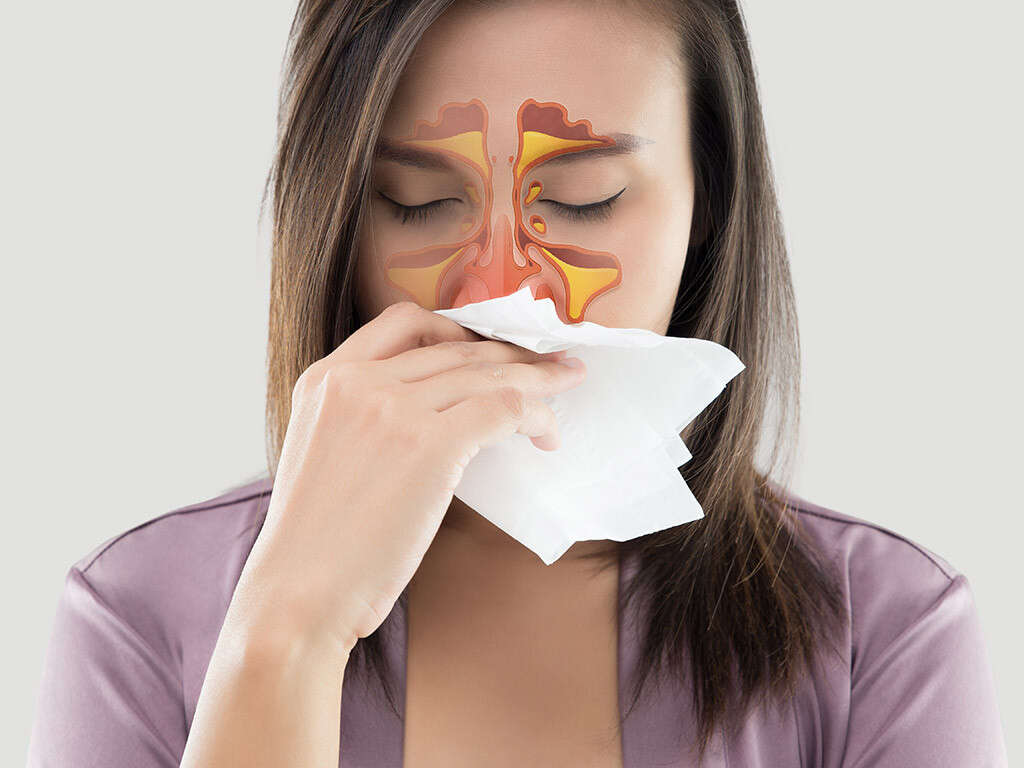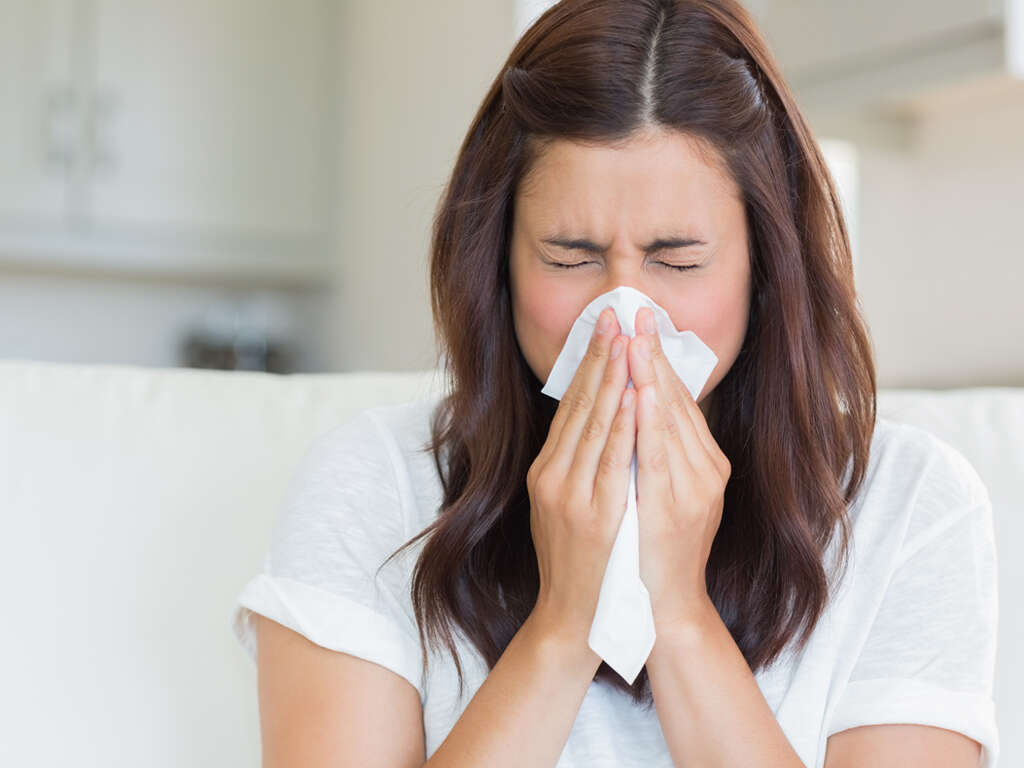10 Hay Fever Symptoms
When there is something unwelcome in the body, the body tries to eject it. This is done in a number of ways: The excess secretion of fluids, coughing, sneezing, and other processes help remove the unwanted guest from the body.
Sometimes the body treats harmless substances as unwanted guests, which is known as an allergy. Hay fever is one of the commonest types of allergy. Actually, hay fever is a term given to a collection of allergies that tend to affect patients around the summer time. It can result in a number of symptoms that can range from mild to severe.

Symptom #1: Blocked or Runny Nose
The nostrils provide an ample passageway that allows people to breathe through the nose. Should this passage become blocked, however, then breathing can become considerably more difficult. Hay fever can cause inflammation of the nostrils, blocking the air passageway and making it difficult to breathe.
It can also cause the production of excess nasal mucus (commonly known as snot), which helps expel irritants from the nasal passage. It can be very uncomfortable, particularly for people who already have breathing problems.

Symptom #2: Watery and Itchy Eyes
The eyes are quite delicate, but they are also quite well protected. They are sunken into the skull, which acts as a protective casing that keeps them safe from injury. The eyelids and eyelashes help protect them from small particles. Regardless, the eyes are still not completely safe from irritation or harm.
Sometimes even tiny molecules can cause discomfort. When pollen or other allergens come into contact with the eyes, then they become itchy to encourage people to rub them. Rubbing helps remove the allergen. Allergies also cause the production of excess fluids in the tear ducts, which further helps to remove the allergen.

Symptom #3: Loss of Smell
The sense of smell provides so much information about the environment. It can help people detect things they are looking for, find things that should not be there, and determine whether or not food is safe to eat. In short, life would be quite different without the sense of smell.
Many people with hay fever lose their ability to smell during an allergy attack. Odors can become undetectable even up close. For example, it may be all but impossible to smell smoke during a fire. Thankfully, the sense of smell will return once the hay fever has passed.

Symptom #4: Rash
A rash could be caused by a huge range of factors. They are often red and itchy but can vary considerably depending on its type. They can be caused by internal pathogens or external irritants that come into direct contact with the skin. In some cases, they can be an indicator of a potentially serious illness.
Some people with hay fever develop a rash on the skin when they encounter pollen, grass, or some other allergen. While these rashes can be uncomfortable, they are not dangerous and will diminish once the hay fever passes.

Symptom #5: Headache
Headaches are common, and they can range from mild to severe. Very few people have not experienced one. They can be caused by a variety of factors, including hay fever. A headache caused by hay fever is unpleasant and can become debilitating when combined with other symptoms.
Fortunately, medications will often soothe hay fever symptoms, and headaches associated with hay fever are unlikely to last long.

Symptom #6: Coughing and Sneezing
Coughing and sneezing are natural responses that help the body expel unwanted items. They are reflexes that occur when something unwelcome is present in a passageway. Coughing and sneezing are often powerful enough to force undesirable substances out of the body.
When allergens that cause hay fever enter the passageways, coughing and sneezing develop as the body deals with the allergens. This is likely to continue until the allergen is completely removed. The symptoms can be quite uncomfortable and, in some cases, can lead to a sore nose and throat.

Symptom #7: Difficulty Focusing
People are generally quite alert throughout the day and have little difficulty concentrating on whatever tasks they encounter. However, numerous ailments can affect people’s ability to focus and think clearly. Hay fever sufferers, for instance, often feel groggy and foggy-minded.
It can become difficult to focus on even the simplest tasks. This can be particularly problematic for hay fever sufferers, especially when combined with other symptoms they are likely already experiencing.

Symptom #8: Itchy Nose, Throat, and Ears
Itchiness is one way the body indicates that something is wrong. The symptom has a wide range of causes, such as infections or allergens. As uncomfortable as it is, itching often serves a very useful purpose.
People suffering from a hay fever attack are likely to experience itchiness in the nose, throat, and ears because that is where the allergen is likely to come in contact with the body and cause a reaction. It is best to avoid scratching no matter how tempting it may be. The symptom will pass before long.

Symptom #9: Shortness of Breath
Hay fever can have quite an impact on the respiratory system. The allergic reaction causes blocked airways, making it difficult to breathe. This can lead to shortness of breath, but there is usually nothing to be alarmed about unless a person also suffers from other breathing conditions, such as asthma.
Hay fever in conjunction with asthma can cause a tight sensation in the chest as well as difficulty breathing, coughing, and wheezing. Patients with these conditions should keep an inhaler or other treatments for asthma with them at all times.

Symptom #10: Drowsiness
It is important to be as active as possible during the daytime, but some illnesses can slow down people considerably. Hay fever often makes people feel very drowsy.
They can easily become lethargic and might seem lazy. Allergy medications like antihistamines can also make the drowsiness worse, but such medications are often necessary.












